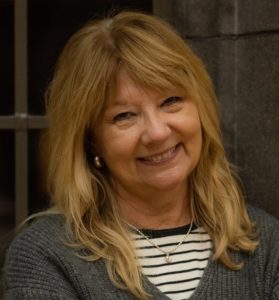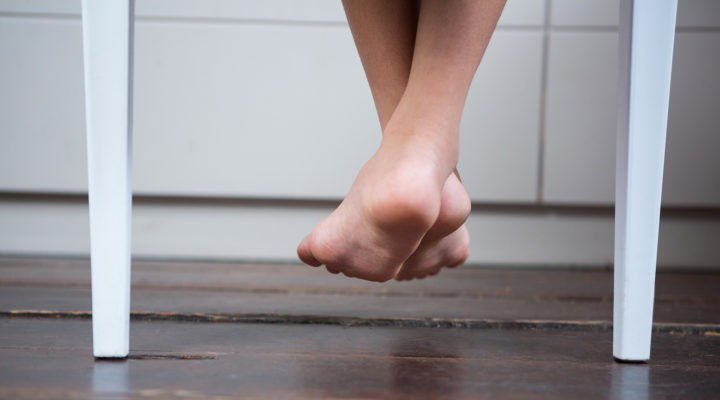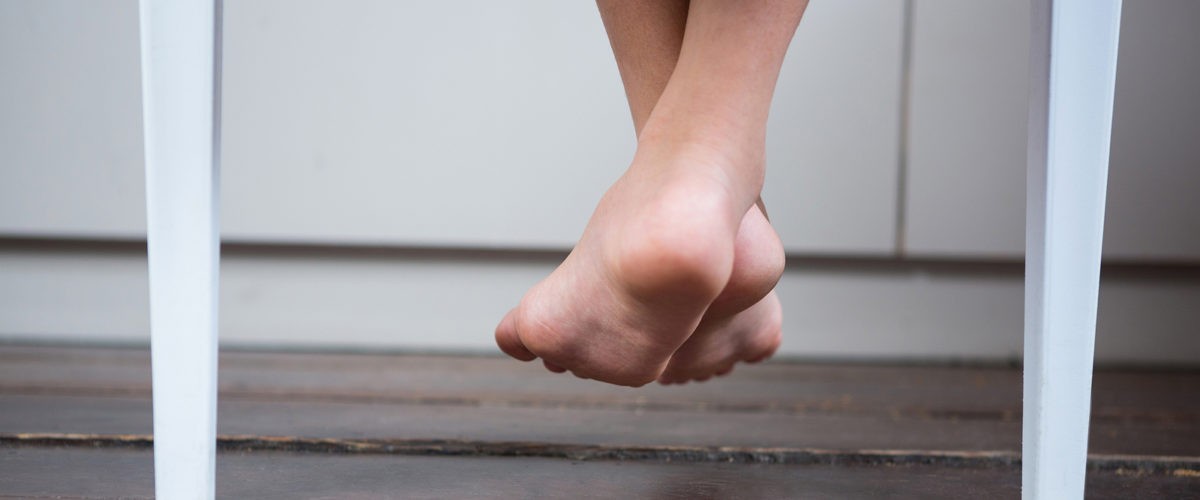Summer visits to my grandmother’s farm included accompanying her to work decades before the Take Your Daughter to Work Day evolved. Her 25-plus-year career as the registrar of voters in a Louisiana parish populated by struggling farmers spanned the Jim Crow era and a decade beyond the Voting Rights Act. I saw these historic events unfold as an elementary school age child in my designated chair in the one-room Registrar of Voter’s Office in the parish (called counties in the other 49 states) courthouse.
The courthouse was the one-stop place for a marriage license, voter registration, driver’s license, and the place to pay for creative traffic violations such as improper backing or circling around the courthouse square. Most of these transactions were posted in the weekly parish newspaper, so privacy was scarce.

Paula Mangum Sheridan
Although I was forbidden to wander upstairs to the court and judge’s chambers, I could skip to the police station and jail just outside my grandmother’s back office door. There I learned that prisoners and parish employees often were related or good friends. And like most families in that parish, my people did business in many courthouse offices, weaving in and out of the good side of the law. This truth kept me from living above my raising.
While in the office, my grandmother’s rules were clear. When a citizen entered the room, my body was glued to the chair and my mouth was closed. No matter how much my starchy petticoats itched. My swinging legs were stilled, although they didn’t yet touch the floor. It was the quiet chair. The person seeking assistance was her first priority and was treated with dignity and respect. Even though my grandmother had a welcoming demeanor, the Louisiana voting laws that dictated her protocol were exclusive. Professional decorum was an impotent antidote to oppressive structures. No amount of Southern social graces could disarm the Jim Crow machine.
I witnessed farmers in faded overalls and ripped leather boots “fail” voter application and literacy tests that I was able to complete in the third grade. Many were prevented from learning to read and write but were wise in many other ways. They crafted velvet green carpets of cotton and soybeans out of dry soil, raised livestock and nurtured families with limited resources. I remember this place as a community of generous people, sharing produce and casseroles according to their neighbor’s needs. I always felt welcome there. But that welcome wasn’t extended to everyone.
“I witnessed farmers in faded overalls and ripped leather boots “fail” voter application and literacy tests that I was able to complete in the third grade.”
I averted my eyes when my grandmother had to “grade” the test and report an unsuccessful attempt to register to vote. It was horrible to witness the pain of another person, especially as a child seeing an adult lose face. The applicant’s walk to the office door left footprints of disappointment and discouragement.
My mind told me that they didn’t pass the test. Those were the rules. Just like the rules at school. But my heart told me that something was wrong. Something that I could not understand or explain. That feeling stung me like the wasps hiding in my grandmother’s fig tree.
By the time the Voting Rights Act was implemented, my feet touched the ground in my assigned chair. But the rules of my behavior remained the same. I remember the sense of dignity in the room when my grandmother would say, “Mrs. _______, make your mark here.” An X was a legal signature, as grand as Elvis’s autograph. The tests for “literacy” and “morality” were no longer an impediment for citizens — but other threats prevailed.
In my high school years, I was a summer worker in my grandmother’s office, following Louisiana’s legal protocol for voter application and registration. Even though the Jim Crow laws and voter suppression were now illegal, I wonder how I legally contributed to someone’s exclusion. Not if, but how. The deck was stacked against Black voters in more obscure ways. You had to dig for it, but it was there. Black voices were a threat to the status quo.
As I reflect back on those childhood summers with my grandmother, I realize I felt many things that my mind didn’t understand. My heart had a clue when my head couldn’t yet make sense of it all. I was attuned to another person’s experience of defeat and humiliation. I remember my own sense of helplessness as a child watching an adult’s hopes dashed as I sat obediently still in my grandmother’s chair.
“I remember my own sense of helplessness as a child watching an adult’s hopes dashed as I sat obediently still in my grandmother’s chair.”
That gut feeling we had as children still can serve us all if we honor it for the wisdom it can be. Sometimes that’s the lead horse that takes us to a new place when we don’t yet have directions. The feeling that something is not quite right here. Conversely, we know the feeling that we are safe, and we belong. It can help us discern the difference between laws and human rights, between rules and grace.
I am now older than my grandmother was when these events occurred. I remember the feelings more than I remember the actual events. Perhaps now there is a season for me to sit in a chair, but I sit as an engaged observer, listening with my head and my heart. But not as an obedient citizen watching another person being mistreated. I sit to learn and reflect for action. I can move my legs to respond, even if I get a side-eye from someone who wants me to be still and silent.
With our heads and hearts, we can address the different forms of human oppression currently in play. We can stare down the limits that bind us all. My front-row seat to voter suppression can be replaced with my involvement to voter access. May I also see my role in the bigger picture of structures that enhance or deter our ability to thrive. It’s possible to follow the rules with decorum while denying opportunities for others.
Today’s voter suppression efforts are also legal. Redistricting. Discerning valid from feckless claims of voter fraud. Postal service disruptions. Denying voting rights because of felony.
What do you see from where you sit? Are there times or places when something doesn’t quite hang together? Perhaps you’ve seen someone struggle in a situation where it’s not possible to succeed. Maybe you’ve had that experience. Use it. You don’t have to have all the facts at the beginning. Find the people, the organizations, resources and opportunities to help you figure out the next steps.
How does your work connect to the big picture of social justice? Analyze the bigger systems that you serve. Do they promote the justice that aligns with your values? Does this feel right to you?
May we all be aware of the parts we play in our world’s bigger picture. May the children who watch us see us work for dignity and love.
Paula Mangum Sheridan recently retired from Whittier College in Whittier, Calif., as an associate professor and program director of the social work department. She is a licensed clinical social worker and supports voter accessibility and the rights of people without homes in her community.
Related articles:
Reflections on the 19th Amendment and the pace of change
We can’t talk about racial justice without addressing the ‘value gap’
White politicians and conservative evangelicals are still riding ‘the wrong train’


